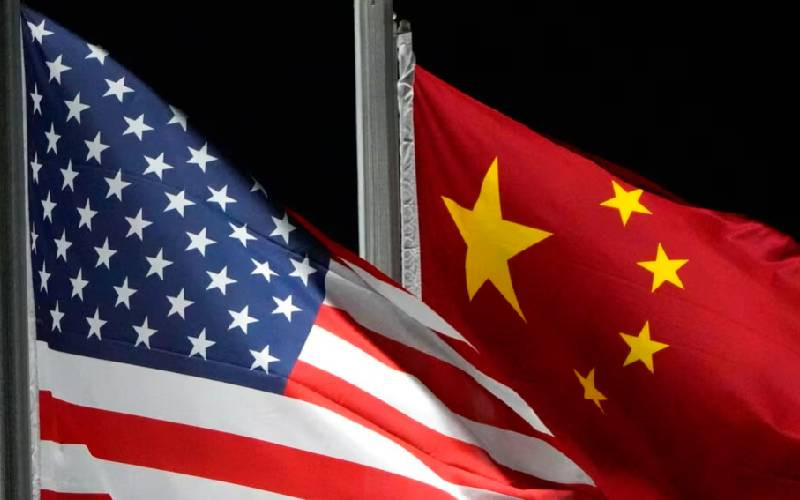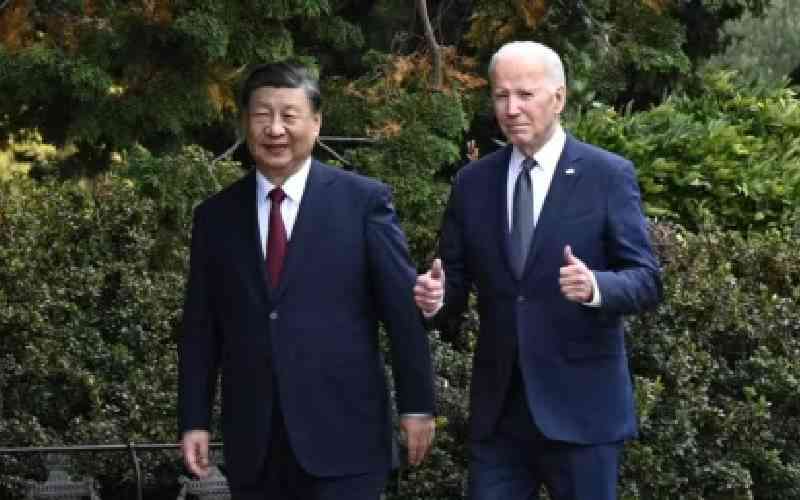By Bob Wekesa
During the recently concluded G20 Summit in Cannes, France, one of the most sought-after leaders was Chinese President Hu Jintao. Why would leaders of the rich Europe and North America-dominated club fall over themselves to engage the president of a country labelled as communist?
The answer lies in the fact that China can no longer be wished away in global economic matters, if not in politics.
While European and North American economies have been in free fall over the last five years, the Chinese economy has confounded economic analysts by galloping quickly. This year, the Chinese economy is projected to grow by more than nine per cent and this is the worst in recent years.
The West and particularly Europe is suddenly and involuntarily looking eastwards for financial bailout, shelving long held ideological and geopolitical disagreements in the process.
The situation has become dire in the wake of the shaky developments in Greece, a euro zone member state that is on the verge of a bankruptcy that could spell doom for the European Union. The mortal fear in Europe is that if Greece goes south, the contagion might hit Italy, Spain, Portugal and Ireland literally sparking an economic collapse of historic proportions.
China has become an alternative of last resort for European economies dithering on the brink precisely because the country has huge currency reserves estimated at $2.5 trillion. Even before the G20 meeting, European leaders have been quoted urging China to invest some of these resources in European sovereign debt principally through the European Financial Stability Facility.
Of course, China has an inherent interest in the financial stability of Europe. Europe is China’s biggest trading partner globally and economic woes there would have a ripple effect not just on China but globally. The point of departure here is that China’s sustenance of double-digit economic growth over the last decade while the West has gone into sustained recessions at least for the last five years is worthwhile considering Africa, a continent described as the next frontier for economic growth in the coming years, now has two models for socio-economic development.
It would appear that the Western model whose main pillars are liberal market driven dynamics is being put under intense pressure as financial institutions collapse or require the interventions of governments to stay afloat. On the other hand, the Chinese model that revolves around socialist market principals has been on an upward trend.
From the liberal conception that markets do not lie and that governments have no business doing business, the socialist market approach where market dynamics operate side by side with state interventions is gaining currency. Nowhere has this been powerfully, if dramatically exemplified than in the West itself where the ‘occupy’ demonstrations have denigrated big corporate as, well, greedy.
An interesting aside to the evolving ascendancy of China in global economic matters is the worries expressed by Western countries over its role in Africa. While looking at China for salvation from economic woes inflicted by policy shortcomings, European and US international trade experts are lamenting the closer ties between China and Africa.
Last week, a US senate subcommittee on Africa started policy discussions aimed at curtailing China’s increasing economic ties with Africa. In both the US and EU’s African economic cooperation strategising, various policy documents specifically mention the need to contain the growing influence of China in Africa. It would appear that China’s increased presence in Africa is having the impact of waking the West from its laissez faire over Africa. This bears similarities to the cold war era when African countries played the West and the Eastern blocs to their advantage.
However, from the foregoing, it is obvious there is something inherently wrong in the neo-liberal school of thought otherwise referred to as market fundamentalism just as Soviet-style communist fundamentalism collapsed because of its rigidity.
Chinese socialist market economy is worth consideration because it is an optimal cross between the planned economy approach of communism and the market economy approach of liberal capitalism. For instance, according to this logic, it would be foolhardy for the Government to proceed with privatisation of entities in key sectors such as seaports and sugar industry.
—The writer is a journalist studying at the Communication University of China
Stay informed. Subscribe to our newsletter
 The Standard Group Plc is a
multi-media organization with investments in media platforms spanning newspaper
print operations, television, radio broadcasting, digital and online services. The
Standard Group is recognized as a leading multi-media house in Kenya with a key
influence in matters of national and international interest.
The Standard Group Plc is a
multi-media organization with investments in media platforms spanning newspaper
print operations, television, radio broadcasting, digital and online services. The
Standard Group is recognized as a leading multi-media house in Kenya with a key
influence in matters of national and international interest.
 The Standard Group Plc is a
multi-media organization with investments in media platforms spanning newspaper
print operations, television, radio broadcasting, digital and online services. The
Standard Group is recognized as a leading multi-media house in Kenya with a key
influence in matters of national and international interest.
The Standard Group Plc is a
multi-media organization with investments in media platforms spanning newspaper
print operations, television, radio broadcasting, digital and online services. The
Standard Group is recognized as a leading multi-media house in Kenya with a key
influence in matters of national and international interest.









